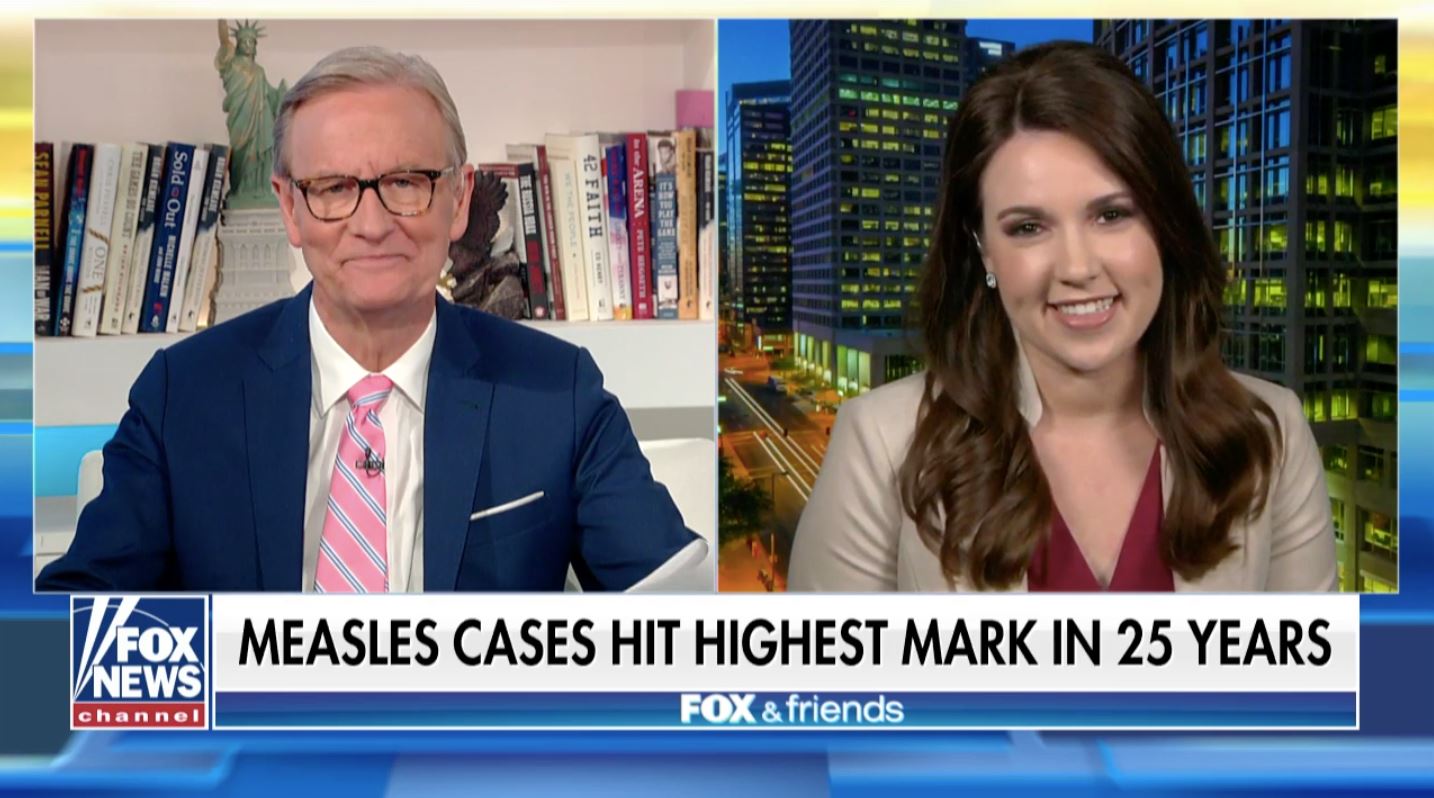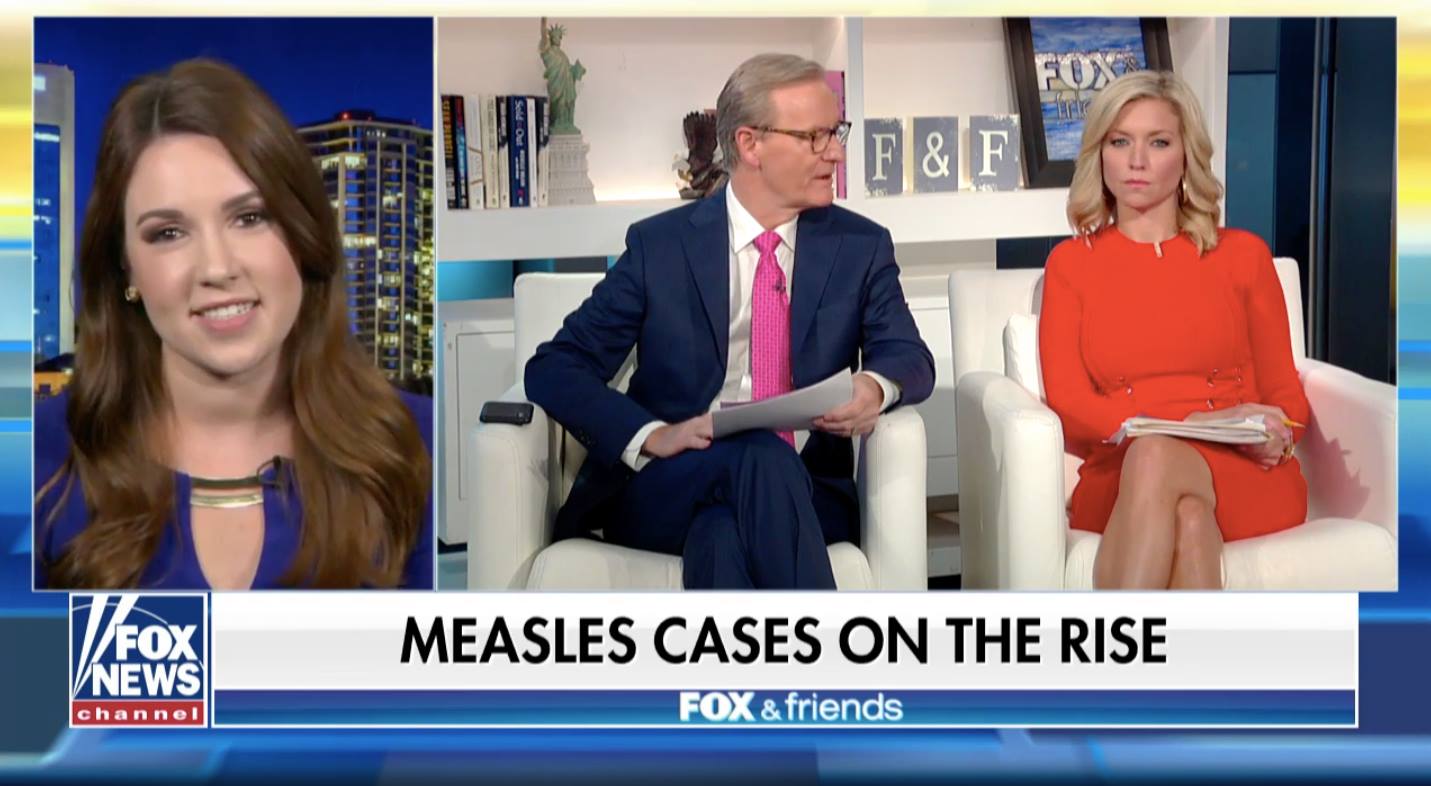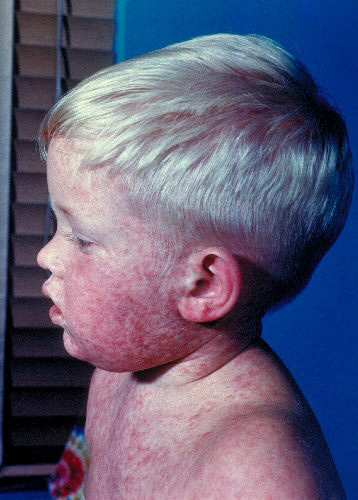What Parents Need To Know About The Measles Outbreak
May 26, 2019
- 1.7K
- 1.7Kshares
This post was originally published in February 2019 in response to the measles outbreak in Washington state. Since then, the number of measles cases have continued to grow across the United States. I’m tracking all new measles cases and outbreaks and adding updates to the top of this post. Below these updates you will find more information about measles and answers to the questions I’ve received frequently from my patients’ parents and members of the KidNurse Community about the measles outbreak. Vaccinating is the key to protecting your family AND community, and putting an end to the largest measles outbreak we have seen in decades.
From January 1 to August 15, 2019, 1,203 individual cases of measles have been confirmed in 30 states. This is the greatest number of cases reported in the U.S. since 1994 and since measles was declared eliminated in 2000. The majority of people who got measles were unvaccinated.
April 30, 2019 Measles Cases Update

At 704 cases, measles is officially at a 25 year high. I went back on Fox & Friends to discuss the latest about the measles outbreak now affecting 22 states. We talked specifically about a 5 month old in California who contracted this disease because of declining herd immunity. He was too young to be vaccinated. Such a sad case, and entirely preventable.
April 10, 2019 Measles Cases Update

On April 10, 2019 with 465 confirmed measles cases across 19 states, I was invited on Fox & Friends to talk about the outbreak and the importance of vaccinating your children.
The 2019 Washington Measles Outbreak
I was invited on Fox & Friends to weigh in on the measles outbreak after a state of emergency was declared in Washington state in February 2019. I talked a little bit about my past, being vaccine hesitant, and what helped me change my mind about vaccines. It was a great opportunity to share the message that vaccines are the safe and effective answer to prevent the unnecessary suffering we are seeing from the resurgence of a disease we once eliminated.
As of May 2019, there were 80 confirmed cases of the measles in the state of Washington in 2019. Of these measles cases, 63 are in unimmunized individuals (with 11 cases being unverified). 68 of these cases are in children under the age of 18, with the strong majority being under the age of 10.
Clark County was the epicenter of the 2019 measles outbreak in Washington, and 71 of those confirmed measles cases occurred in Clark County. 7.9% of school children were exempted from getting vaccines in Clark County which undeniably contributed to the rapid spread. Sadly, many families in Clark County with infected children traveled to highly public places before they realized they were contagious, including, Costco, Ikea, Walmart, the Portland Airport, a basketball arena, churches, urgent cares, hospitals, and even out of state to Hawaii and Oregon, making the measles outbreak grow quickly.

Source: Centers for Disease Control and Prevention
What You Need To Know About The Measles Outbreak
We’ve continued the conversation about the measles outbreak in the KidNurse Community. Here are some of the top questions I’ve gotten about the measles and what parents need to know to protect their children.
How contagious is measles?
Measles is extremely contagious. This is the huge reason why we get so concerned about measles outbreaks. 90% of people who are close to someone that has the measles, and are not themselves immune, will also become infected. Additionally, the measles virus can live for up to two hours in the air where an infected person coughed or sneezed. That is extra concerning when you consider all of the public places that measles has traveled in the Washington outbreak.
The classic red rash that occurs with measles doesn’t usually appear until a person has been contagious for about 4 days. Fever and generalized cold symptoms develop first. Unfortunately, that means that individuals infected with measles can easily transmit this disease long before they know they have it. Individuals with the measles continue to be contagious until about 4 days after the rash has resolved.
Is measles something to really be concerned about? I’ve heard it is just a rash.
A common sentiment from those against vaccines is that measles is not a serious disease. This is absolutely incorrect. Globally, over 100,000 people die annually from the measles to this day, most of which are children under the age of 5. According to the CDC, one in every 20 children with measles gets pneumonia; one in 1,000 will develop encephalitis (swelling of the brain); one or two in 1,000 children will die.
During the Minnesota outbreak last year, one child was in the PICU for 15 days on a ventilator. Also, there is a progressive late complication of measles infection known as Subacute Sclerosing Panencephalitis, or SSPE. While rare, SSPE is extremely tragic and always ends in death. This father lost his son to SSPE after his son contracted measles as a baby. I’d encourage you to read their story and his plea for parents to vaccinate their children. Measles is not a disease to be downplayed.
Measles is especially dangerous for individuals who are immune-compromised, infants that can’t be vaccinated, young children, pregnant women, and seniors.
I wrote about Maggie’s story back during the 2015 measles outbreak from Disneyland. She was exposed to the measles while undergoing treatment for leukemia and then had to be quarantined for 21 days while her family prayed she didn’t contract the disease. Choosing to vaccinate doesn’t just help protect your own child, it protects many children just like Maggie.
Ronald Dahl, the famous author of Charlie and the Chocolate Factory, wrote this heartbreaking letter many years after his daughter Olivia died from the measles. The very point of his letter was to stress to parents the dangerous, sometimes lethal nature of measles. He dedicated James and the Giant Peach to Olivia while she was still alive and The BFG to her after her death. Unfortunately, today, measles has hit a record-high rate in Europe, sickening 41,000 people in the first half of 2018 alone.
Is the MMR vaccine really safe?
Yes, yes it is. The MMR vaccine has been studied in hundreds of thousands of children. Vaccines are arguably one of the most studied medical interventions of all time. To begin reading research studies related to the safety of the MMR vaccine, I recommend parents start here.
When is the MMR vaccine recommended?
The MMR vaccine is recommended between 12-15 months of age and age at 4-6 years of age. In 2018 alone, we had 17 different outbreaks across the US resulting in 349 cases of measles. Because of this and the outbreaks we continue to see this year, I highly recommend parents to get their children vaccinated as soon as possible (12 months & 4 years). If your child is behind on their vaccines, get him or her up to date as soon as possible. Building antibodies to the MMR vaccine takes about 10-14 days before your child is protected.
If you are planning to travel to area where measles is more likely (some countries internationally or hotspots across the US), talk to your pediatric health care provider about giving your baby the MMR vaccine earlier than 12 months. In some cases, we will give this vaccine after 6 months.
How effective is the MMR vaccine?
Great news! The MMR vaccine is extremely effective. One dose is approximately 93% effective, and the second dose brings up the efficacy to 97%.
Do adults need a booster MMR vaccine?
According the CDC, people who received two doses of the MMR vaccine as children are considered protected for life. The MMR vaccine was developed in 1963. Most adults born from that year on have received at least one MMR vaccine. Adults working in healthcare or with vulnerable populations need to make sure they’ve received two doses. If you are not sure if you were vaccinated as a child, talk to your healthcare provider.
For more information about measles related deaths in the United States, please visit here.
Author: Dani Stringer, MSN, CPNP, PMHS – founder of KidNurse and MomNurse Academy
- 1.7K
- 1.7Kshares